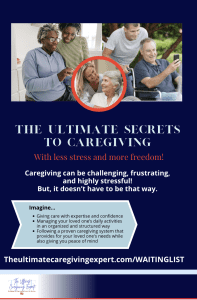What is Amyotrophic Lateral Sclerosis
Symptoms of Amyotrophic Lateral Sclerosis
Coping Strategies for Amyotrophic Lateral Sclerosis
Take time to accept the diagnosis: The news of an AL diagnosis can be devastating, and you may need time to get the fact. In addition, you and your family would need some time to grieve after the diagnosis.
Don’t lose hope. Being hopeful is the most effective medicine for the disease: The palliative care team will help you focus on the positive aspects. And will also help you live a quality life. Usually, the life expectancy rate is around 3 – 5 years for individuals with ALS. However, some live as long as ten years after a diagnosed with ALS. So being hopeful can help you live a contented and quality life.
Physical incapability is not the end of the road: ALS restricts the individual’s ability to carry out daily tasks due to muscle weakness. Paralysis is often inevitable in such cases. This makes the individual more prone to depression. However, thinking of ALS as just an insignificant part of your life. This will help you believe in a positive direction. And will also help you live a fulfilling life.
Tips to take care of your loved ones with Amyotrophic Lateral Sclerosis
Understand the disease: Understanding ALS and its symptoms can help you, as a caregiver, give proper care to your loved one. ALS limits one’s physical ability, which can cause emotional havoc. As a caregiver, you need to understand their physical and emotional condition. And chalk out better strategies to help them live with the disease.
Take charge of their skin health: It has often been seen that our aging parents with ALS also suffer from skin problems. Pressure wounds and bedsores are common accompaniment that requires prompt treatment. Caregivers should keep checking for such wounds and get them treated on time. Check out my post on how to help with bed sores.
Help your loved ones with breathing exercises: ALS is a progressive disease. Which gradually affects the respiratory system, affecting one’s ability to breathe. With breathing exercises, the shortness of breath will lessen. And your loved ones experience less difficulty while living.
Help them with dietary changes: Constipation is a common problem with ALS individuals. As muscle weakness progresses, it also cripples bowel movements. Therefore, feeding your loved ones a fiber-rich diet to ease constipation is a good idea. After consulting with the doctor, you can also consider giving them stool softeners. Check out my post on constipation.
Speech therapy: ALS also massively affects the speech of your loved ones. For this, speech therapy is necessary. So that your loved ones can continue to communicate with you and other family members; however, if speech is wholly lost, a speech therapist will assist with other methods of communication.
More suggestions to help with a caregiver
A caregiver can provide invaluable support to a loved one with Amyotrophic Lateral Sclerosis (ALS) who is living at home. Here are some of the ways a caregiver can help:
Assistance with activities of daily living: A caregiver can assist with daily activities such as bathing, dressing, grooming, and toileting.
Mobility assistance: A caregiver can help with mobility aids such as walkers, canes, or wheelchairs and provide service with transfers.
Meal preparation and feeding: A caregiver can help with meal preparation, feeding, and monitoring for swallowing difficulties.
Medication management: A caregiver can assist with medication management, including administering medications, tracking medications and refills, and reporting any side effects or concerns to the healthcare team.
Emotional support: A caregiver can provide emotional support and companionship and help reduce feelings of isolation and loneliness.
Coordination of care: A caregiver can help coordinate appointments, transportation, and communication with healthcare providers.
Safety monitoring: A caregiver can monitor for any safety concerns, such as falls or choking, and take appropriate action to prevent accidents.
Overall, a caregiver can help improve the quality of life for a loved one with ALS by providing practical assistance and emotional support while helping to ensure their safety and well-being at home.
Caregiving can be challenging, frustrating, and highly stressful!
But it doesn’t have to be that way.
I will tailor the sessions to your specific needs to:
Additional Education
Education in caregiving refers to acquiring the knowledge, skills, and understanding necessary to provide care for individuals who require assistance with activities of daily living, such as bathing, dressing, eating, and grooming. This education can be obtained through formal programs or on-the-job training and experience. Education in caregiving aims to equip individuals with the skills and knowledge necessary to provide high-quality, compassionate care for those in need.
Caregiving can be challenging, frustrating, and highly stressful!
But . . . it doesn’t have to be that way.
Imagine . . .
Giving care with expertise and confidence
Managing your loved one’s daily activities in an organized and structured way
You follow a proven caregiving system that provides for your loved one’s needs while giving you peace of mind.
If the above sounds like what you need and have been searching for desperately . . . Then you need to enroll in The Ultimate Secrets to Caregiving with LESS Stress and MORE peace course!
Conclusion
The post How To Care For Your Loved One With Amyotrophic Lateral Sclerosis (ALS) appeared first on The Ultimate Caregiving Expert.

